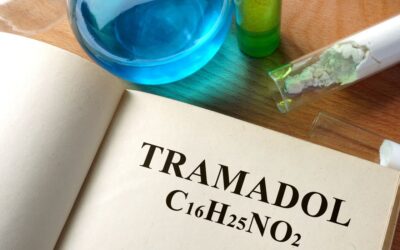Teen Alcohol Abuse: What Parents Need to Know
Alcohol may seem like just a drink to some people, but for teens, it can be very harmful. Teen alcohol abuse is a serious problem that can lead to bad choices, poor health, and even death. This article will help you learn what teen alcohol abuse is, why it’s dangerous, and how parents can help their children stay safe.

What Is Teen Alcohol Abuse?
Teen alcohol abuse means that a young person is drinking alcohol in a way that causes harm. This could mean drinking too much, too often, or drinking and doing risky things like driving. It is especially dangerous because teens’ brains are still growing. Drinking during this time can hurt their behavior, cognition, and memory.
Why Do Teens Drink?
Many teens feel pressure from friends, siblings, or even what they see on TV or online. Advertising sometimes makes drinking look cool or fun. Some teens drink to try to deal with stress, divorce, or problems at school. This is called coping, but it’s not a healthy way to do it.
Dangers of Alcohol for Teens
Alcohol is a depressant. This means it slows down the nervous system and affects how the brain works. Teen alcohol abuse can lead to:
-
Injury or death from drunk driving, violence, or assault
-
Trouble in school or with the law
-
Addiction and substance abuse problems later in life
-
Poor nutrition and health
-
Risk of poison or vomiting from binge drinking
-
Changes in blood sugar level, blood pressure, and liver damage
-
Problems with pregnancy if a teen becomes pregnant while drinking
Legal Drinking Age and Why It Matters
In the U.S., the legal drinking age is 21. This law helps protect young people from harm. Teens are considered minors, and drinking at this age can affect their insurance, get them in trouble with the law, and raise their blood alcohol content (BAC) faster than in adults.

Risk Factors for Teen Alcohol Abuse
Some teens are more likely to have problems with alcohol. Risk factors include:
-
Genetics: Family history of addiction
-
Problems at home or school
-
Peer pressure
-
Going through puberty
-
Lack of parent supervision
-
Poor mental health or not knowing how to manage stress
The Centers for Disease Control and Prevention (CDC) and the Youth Risk Behavior Surveillance System show that teens who drink often are more likely to get hurt or do something dangerous.
Signs of Teen Alcohol Abuse
Parents should watch for changes in their teen’s:
-
Behavior (being secretive or angry)
-
Friends (new group of friends who drink)
-
Health (bad skin, bad breath, or feeling sick)
-
Grades or school performance
-
Smell of alcohol like wine or beer
-
Slurred speech or clumsy movements
How Alcohol Affects the Teen Brain
The teen brain is still growing until around age 25. Alcohol can damage the parts of the brain that control:
-
Impulsivity: Acting without thinking
-
Perception: How they see the world
-
Cognition: Learning and decision-making
-
Memory: Remembering things clearly
Damage done to the brain during teen years may last into adulthood.
The Role of Culture and Media
In some cultures, drinking alcohol is common and even expected. Teens may feel like they should try it to fit in. TV, music, and movies often show drinking as fun and harmless. This can be misleading and increase peer pressure.
Getting Help for Teen Alcohol Abuse
If you think your teen is abusing alcohol, don’t wait. Talk to your child calmly and listen. Here are ways to help:
1. Therapy and Counseling
A school counselor, therapist, or mental health center can help your teen talk about what’s going on. Some may offer peer support groups, where teens can meet others going through the same thing.
2. Medical Help
A doctor can check your teen’s health and help treat problems with the liver, nutrition, or other areas.
3. Addiction Centers
There are special places for teens with substance abuse problems. These centers offer therapy, safe detox, and teach better ways to handle stress.
4. Parent Involvement
Parents should stay involved in their teen’s life, set clear rules, and model healthy coping skills.
What Does Research Say?
The National Institutes of Health and American Academy of Pediatrics say that teen drinking can lead to alcohol addiction later in life. It’s important to act early.
-
Teen binge drinking is linked to lower school success and higher risk of violence.
-
Teens who drink before age 15 are more likely to develop an addiction than those who wait until they are 21.
Talking to Your Teen
Here are some tips for parents:
-
Stay calm and open-minded.
-
Use facts, not fear.
-
Talk about the legal drinking age and why it’s important.
-
Explain what drunk driving is and how dangerous it can be.
-
Share stories or statistics to show the real risks.
Prevention Tips
-
Spend time with your teen every day.
-
Know their friends, school activities, and where they go.
-
Help them build healthy coping skills, like exercise or hobbies.
-
Encourage open talks about peer pressure and making good choices.
-
Lock up or remove alcohol from your home.

Seeking Treatment? We Can Help!
We work with PPO Out of Network Health Insurance Policies
If you or a loved one are struggling with mental health challenges or substance abuse, reach out to Mountain Sky Recovery today. Our team of compassionate professionals is here to support your journey towards lasting well-being. Give us a call at 951-498-5412. Visit SAMHSA for more information.




